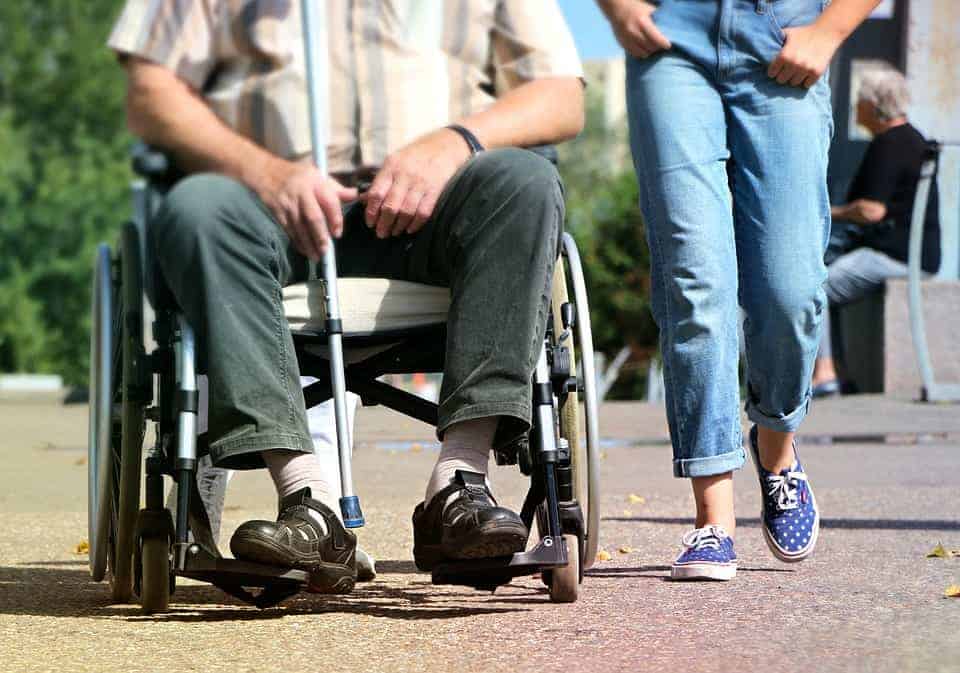Those with physical limitations may feel reliant, even codependent, on caregivers and others. Learn the tools that can help to break the bonds of codependency, and improve overall quality of life.
Individuals who live with physical limitations or disabilities may develop a sense of codependency on caregivers, loved ones, or others. This feeling of reliance can impact and impede overall well-being and leave many with a decreased quality of life. Invest in mobility devices that aid and assist the individual in daily living, which can build confidence and lift spirits.
Tools can help to break the bonds of codependency
Did you know that almost every person in the country feels some type of codependency on someone else? It is estimated that around 96% of the population struggle with this in varying degrees. Utilize pragmatic tools to combat this epidemic, and to break the burdensome bonds that codependency creates:
-
Empower
Don’t let those with physical limitations or disabilities feel like they are less than they are; make sure to allow them to make choices, tackle situations, and preserve autonomy. Give your loved one the chance to try before lending a helping hand.
-
Reassure
Reassure your loved one- and yourself- that you can do it. Remind them of past trials and tribulations, as well as successes and achievements. This will demonstrate that you have faith in them- even when they don’t have faith in themselves.
-
Reinforce
Model and demonstrate behaviors for those with challenges, which can reinforce how something can be accomplished. For instance, when trying to move from one spot to another, show them how to move to stand or access their mobility aids; when helping your loved one with hygiene, show them how to hold a brush or grooming-tool, as needed.
-
Accommodate
Make every attempt to accommodate the distinct needs of your loved one with mobility aids, devices, and equipment to help keep them independent and safe. Something as simple as providing rails near the bath or reacher-tools for the kitchen can help prevent falls and subsequent injuries, debilitating incidents for seniors. Have the home evaluated by a caregiver or agency to determine areas that may be beefed-up in terms of access and accommodation.
-
Support
Another tool for consumers struggling with their feelings of codependency- and those that love them- is support. Observe National Codependency Awareness Month in January and do something to empower yourself or others, whether that is advocating for someone else or calling up an old friend. Reach out and garner some support for what you are going through, and learn how others deal with feelings of reliance or dependency. Sometimes, it can help to know that there are people that understand.
Aid in providing access and autonomy to those living with physical disabilities
There are a lot of things that you can do around the home to help foster independence while keeping your loved one safe and comfortable. Beyond fixtures and devices, there are some things that you can do to show that you support their autonomy- and that won’t cost a dime.
Do something to provide increased access and autonomy for someone with physical limitations:
-
Listen
When is the last time that you truly listened to what your loved one was trying to tell you? Take time and make it a point to really listen and to hear what they say. It is not always easy to ask for- or decline- assistance, yet it can make the difference in autonomous living and a life of depending on others.
-
Advocate
Another way that you can facilitate and foster self-reliance is to step-up and say something when the occasion arises or when you see your loved one’s wishes being refuted. This extends beyond your own circle and applies to the community of people in this country living with physical disabilities. Do something, volunteer, or speak to enact laws, make changes, and improve life for everyone impacted by physical impairments.
-
Support
Be there to support your loved one, but also pay attention to your own needs as well. Get support from others to take time out when needed, and to prevent compassion fatigue when caregiving for someone with a physical disability or impairment. Support is a two-way street: it pays to seek out resources for both caregivers and their client, consumer, or loved one, to provide better care and to maintain the patience and perseverance to strive toward autonomy.
-
Facilitate
Call today for a thorough needs-assessment and find the mobility aids and devices that counter the challenges of everyday living. From lifts to walkers, chairs to railings, there are simple solutions to everyday tasks that can go a long way in establishing and maintaining independence.
Want to help break the bonds of codependency for someone that you love? Talk to the experts about mobility aids and strategies to make the home a safer and more accessible place, while also building the esteem and autonomy of the individual living with a physical limitation, disability, or medical issue. Quality of life is contingent on a person’s self-worth and self-love, both of which can be improved with simple augments and accommodations around the home- and in the way that you interact with your loved one.
President, Husband, Father, Grandfather Graduate of UC Davis- Bio Sci Major- Go Aggies! Jeff has extensive experience in all of Pacific Mobility’s products and services, and specializes in accessibility products as well as stairlifts, ceiling lifts and custom wheel chairs. His hobbies include spending time with family, gardening, mountain biking, exercising and off road motorcycle riding.
24 years as Owner/President of Pacific Mobility Center – selling, installing, and servicing stairlifts, porch lifts, ceiling lifts, pool lifts, handicap ramping, specialty wheelchairs, scooters, power wheel chairs, and other power mobility devices
Certified Environmental Access Consultant since 2008
Licensed General Contractor since 1998
Certified Aging in Place Specialist since 2016
Board Member for Home Access Professionals
Member of Association of Members of the Accessibility Equipment Industry (AEMA)




